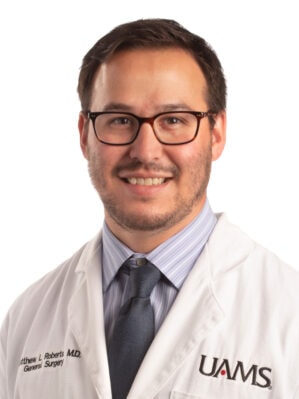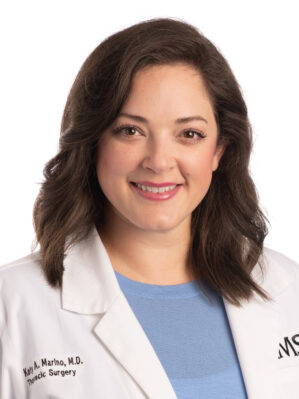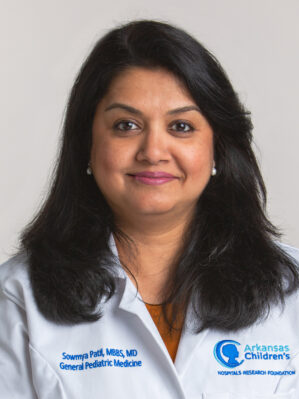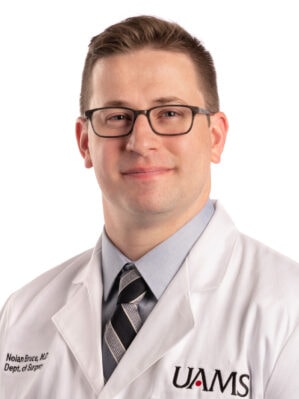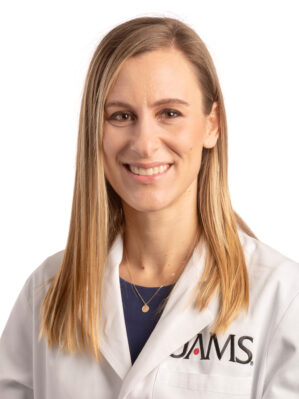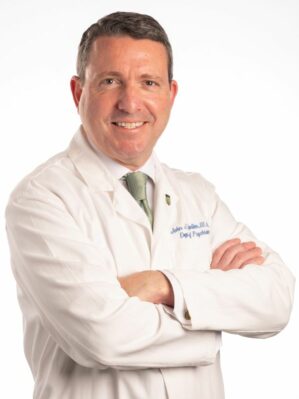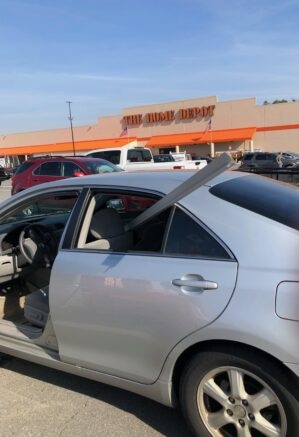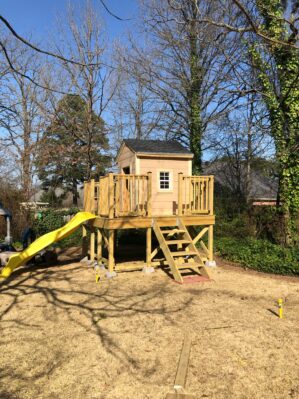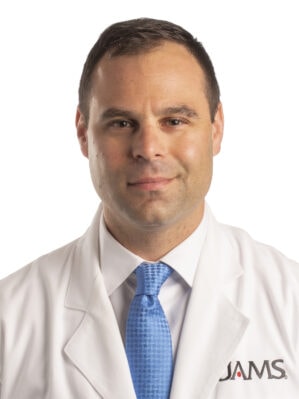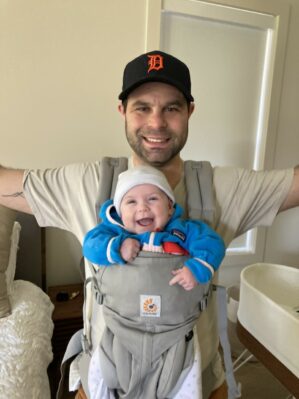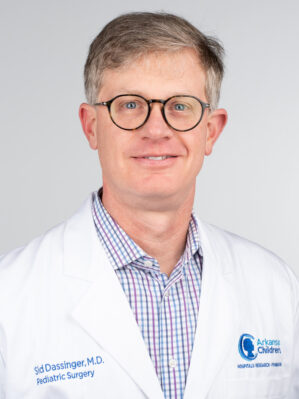
Introduction
Listen to Dr. Melvin “Sid” Dassinger, Chief of Pediatric General Surgery at UAMS, talk about his career path, surgeries he performs as a pediatric surgeon, his interests outside of medicine, and some of his most memorable moments in his medical education and surgical career. We also talk about topics like academic medicine vs. private practice as a surgeon, lifestyle as a surgeon, and what it takes to become a pediatric surgeon.
Transcript
Jasmin: So welcome to the 10th episode of Mentor Spotlight, a podcast designed to help connect UAMS medical students and faculty members. We are Jasmine and Weija – third year medical students, and your hosts for this episode. Today, we have Dr. Dassinger, a pediatric general surgeon at Arkansas Children’s Hospital. Dr. Dasinger currently serves as Chief of Pediatric General Surgery at UAMS. He has served as director of the Pediatric Surgery Fellowship at UAMS and Arkansas Children’s. He’s board certified in general surgery and pediatric surgery by the American Board of Surgery. He is a member of the American College of Surgeons, the American Pediatric Surgical Association, and the American Academy of Pediatrics.
Weija: Dr. Dassinger received his medical degree at the University of Alabama School of Medicine in 2000. He completed his surgery residency at Vanderbilt University Medical Center in Nashville and continued his training with the Pediatric Surgery Fellowship at Saint Jude Children’s Research Center in Memphis before joining UAMS and Arkansas Children’s.
Jasmin: So, we’ve already given you a brief overview of your educational background, like where you went to medical school, residency, and fellowship. But would you mind telling us more about yourself and what made you to decide this whole career path?
Dr. Dassinger: I’ve kind of always knew I wanted to be a doctor. You know? I don’t, I don’t know if you’re the same way or not. But just always what I wanted to do, and so I’ve been fortunate enough to be able to do that. Surgery, you know, it’s uh. When I was sitting in your guys’ shoes, I really liked all my rotations and we kind of did kind of the same thing that you all do. But I enjoyed pretty much all of them, but then you just kind of as you rotate back through your 4th year, you kind of, I think gravitate towards maybe a certain mindset. I think the challenge when you’re in M3 is that your rotation is very much dependent on your resident and fellow. You know who you have on service if you get along great with them, they seem really happy, then you’re like oh this is great I can do this, but then when you go back around, as a four and you start doing electives it’ll become pretty clear you know that, okay? I liked internal medicine when I was a three. I went back and did a cardiology rotation when I was a four, I was like this is terrible. I did not want to do this. I’ll go back just a little bit. So, talking about mentor groups – so we had at UAB, we just got assigned mentor groups. I had no idea what I wanted to do when I got in medical school, just happy to happy to be there. And so, I was assigned to the chief of trauma surgery, just kind of randomly. And it was M1 and M2 and M3 and M4 got assigned. And so, you know, he would say, “Hey, come make rounds with me.” So, like, in between we had test blocks. I don’t know if y’all still do or not, but like you know, every six, eight weeks we had a test and then you had a little gap and then you have tests again. After I would sometimes go over, like when he was making rounds in the trauma unit or the burn unit and go make rounds with him. And you know, he would ask you questions, but like to my knowledge, like, OK, “Is that the pancreas?” You know something like that. So, but I don’t know that may have gotten me interested in surgery a little bit early on and then it just kind of continued. So general surgery seemed like the right path for me. And then it really wasn’t until my 4th year of residency where I decided to do peids surgery. At Vanderbilt we did not, there was not a peids surgery fellowship at the time. So when you’re the 4th year resident, you ran the service, which meant you get to do all the best cases. And I can distinctly remember one weekend I was on call and I was going back to put a kid on ECMO and I’d just done a tracheoesophageal fistula. I was doing all these great cases like man, this is fantastic. This is what I want to do. And so I think, I think kind of the long lasting thing for peids surgery is it really is general surgery. Not a whole lot of that anymore. It’s unique pathophysiology that kind of takes into account the embryology. And it’s just, it’s just fun. Every case is slightly different. It feels like maybe everybody feels the same way, but there’s nuances of diseases that we see that even though you’re overall comfortable with the disease process it still challenges you when you think about how to solve those problems.
Jasmin: Dr. Burford, another pediatric surgery resident, or not resident, sorry, attending, gave us a lecture on pediatric surgery and he told us that pediatric surgery was basically the only remaining true general surgery, like subspecialty. And I think that like, I mean based on my time, like on the surface, you do like a lot of bread-and-butter cases, but then you do like a lot of really interesting cases as well. So, it’s really cool how you don’t have to just limit yourself to just a few organs. You’re able to do basically everything even as a subspecialty.
Dr. Dassinger: Yeah, I think that’s true.
Jasmin: So very, very cool. So how would you pitch this field further to a student looking into doing this?
Dr. Dassinger: Well, I mean a little bit kind of what I said, I mean that’s why I like it. But I mean, you know, when you’re in, you got shoes. I mean it’s end up having to do with what you love. I mean you have to do what do what calls to you and what stimulates you intellectually. Do things that challenge you. And then just do things that you find fun. I mean, you know there are cases that are just fun and good to do. So, I don’t know, it’s not a great pitch, but I don’t necessarily, when you’re choosing your career path I mean, there’s you can make pros and cons. You can do lists, but really, it’s your gut feeling and it’s what you choose that you want to do.
Weija: So, I haven’t done any surgery rotation yet and I was just curious what does your typical day look like? What kind of cases do you see?
Jasmin: How much clinic? How much OR?
Dr. Dassinger: Yeah, it varies in our practice. So in days where. I am not either on call or we say “surgeon of the week.” Then I would either be in clinic or doing -I do have some administrative roles that I that I have to work out – but let’s say I’m in clinic, so I’d have a full day of clinic. I would typically see a little bit more bread and butter pediatric surgery stuff. So inguinal hernias, umbilical hernias, lumps and bumps on arms and legs that people you know think should be removed.
Jasmin: Lipomas.
Dr. Dassinger: Lipomas, exactly. Then we also do like chest wall deformities. So pectus excavatum which you’ve been on the service you probably saw that. So we’ll see, you know, clinics of that. You’ll see kids that need their gallbladder out. So you’ll see that type of stuff that’s bread and butter, that an adult surgeon would see the equivalent things in adult practice, but then we have things like chest wall deformities that are really going to be fairly peds specific. We’ll see kids and evaluate them for doing enteral feeding access so you know G tubes exactly. Things like that. So that’s what my typical clinic day would look like. The typical like on call day or surgeon of the week day-and we do this every morning I mean, that’s one of the great things about our practice is we all sit down together every morning and run the list with our fellows. So we go to the list, we talk about the case for the day, we talk about any patients on our list and we all it’s really constant everyday learning because you know we all learn from each other when we talk. So then go to the OR, do cases. So when you’re on call, you’re going to see things that are common for pediatric surgery, such as appendicitis, such as a disease called pyloric stenosis, such as kids that swallow things and you got to go take it out of their esophagus. That’s very, very common, you know, bread and butter pediatric surgery when you’re on call. Putting in ports and things like that for IV access. But the things that really separate a pediatric surgeon from a general surgeon would be neonatal cases. So because we have a NICU, we’re going to take care of any congenital anomalies that are not really brain or heart. You know, so what I was just talking to this guy, the guy on the phone about, was a kid that had a tracheoesophageal fistula, where the trachea and the esophagus are together, they never separated appropriately, so you have to go in and separate them. There’s a common condition called gastroschisis where all the bowels are on the outside. You got to put it back in and close, so those are things that make peds surgery very interesting. You also have neonatal, or sorry, tumors of childhood and adolescents, which, those are typically going to be seen while they’re in the hospital and operated on while they’re in the hospital. So kidney tumors or tumors of the retroperitoneum, which are called neuroblastomas.
Jasmin: Right.
Dr. Dassinger: Those are things that we would operate on and then I think lastly, one of the things that defines pediatric surgery would be diseases of the biliary tree such as choledochal cysts, such as things like biliary atresia, or tumors of the liver. So we would do those types of cases when we’re on call.
Weija: OK. Gotcha. And how often do you have to be surgeon of the week or on call?
Dr. Dassinger: So I mean that depends on your practice. You know, we’re on call about every fourth or fifth night. It can’t be as much as every three. Surgeon of the week is, you know, about the same, probably one in four, one in five, somewhere around there. Surgeon of the week is fun though.
Jasmin: So we have like six people here?
Dr. Dassinger: We do, I mean, that’s a trickier answer because, everybody, we are general surgeons, but we probably have some niches whether or not it’s either you know another clinical realm or whether it’s administrative. So for example, one of our partners, Todd Maxson, is the surgeon and chief for the entire system, both Arkansas Children’s and Arkansas Children’s Northwest, so he does a lot of his time there. He still likes to do trauma. And so he’ll still have some of that practice, but he has other administrative roles. I have three partners, one from northwest and then two here that are also boarded in critical care. So they’re triple-boarded peds surgery, general surgery, and critical care. And so they also work in the PICU as surgical intensivists. So and then I’m medical director of surgical quality for the hospital so that also takes up some of my time. In addition to doing other stuff. Lots of moving parts. But yeah, we have about, we have really kind of six people down here and then two in Northwest.
Jasmin: Okay. So you mentioned a lot of the procedures that you do. Are there any that you gravitate towards? You really enjoy doing?
Dr. Dassinger: Yeah, so I mean. I really love doing the neonatal cases, childhood tumors, and the biliary stuff. I mean Kasai for biliary atresia is a great operation. Wilms tumors are great operations to do and the neonatal stuff, especially congenital lung lesions or tracheoesophageal fistulas, those are a lot of fun.
Weija: Do you have a favorite case that you can remember? Singular case.
Dr. Dassinger: Well, maybe not that I can remember. Yeah, maybe not a singular case. I mean, you, unfortunately with surgery, you probably remember the bad. You remember the hard cases and the complications. You don’t remember the ones that really, really went well. You know, I do think you remember, you know, like families can be very appreciative, I mean, if you’re able to completely remove the tumor, their child’s tumor. You know, and I mean they can be emotional, they can really be appreciative so that’s rewarding.
Weija: So I guess something that deviates a decent number of students away from surgery in general is the lifestyle. So can you tell us what your lifestyle is like? How do you balance work and life?
Dr. Dassinger: Well, I mean, everybody’s different, I mean, you know, we have these conversations. I mean, some of it can be generational. I mean, you know, everybody thinks that generation below you works less hard than you, right? I mean people felt the same way about me, you know, just the way it is. I think general surgery residency and any sort of fellowship you do can be taxing. I mean you do have an 80 hour work week which is I know that sounds like a lot. It’s better than it was, but then I think a lot of it is the environment that you create for the working environment that you create. I mean, if you have a program that is education over service, it’s going to be more enjoyable to be a part of that, and yes, the hours are long. But you learn a lot. And while not every day is the best day, if you look back on it, I mean, I really enjoyed surgery residency and fellowship. I mean, I thought it was great. I have very good memories and I probably blocked out all the bad ones. So I mean so for that period of time, I mean, in the seven to ten year range, your time is not your own. And you just have to know that. I don’t know what it’s like in other specialties. It’s probably similar. You know, I mean your time is not your own. But then you can have a little bit more control now in your own call and you just have to know, you know that when you’re on call, you’re going, you have to potentially be busy and (14:08) then you choose your practice based on that. You choose your practice based on what you like. And so you know, while I enjoy working with the fellows and so I mean, would I rather have a job where I was on call every fourth night where we got to work with fellows versus every eighth night where I didn’t? No, I’d still choose the one where I had to take more call but got to work with fellows because that’s rewarding. So ultimately, I mean, so you’re trying to find the right lifestyle is kind of figuring out what is meaningful for you, what’s rewarding for you, because that’s what is more lasting.
Jasmin: A genuine, like passion. Because I’ve talked to a lot of like my classmates or my cohort that just finished surgery and a lot of us thoroughly enjoyed surgery. But then we hear from the residents, and that’s probably because the residents are actually like in the depths of their training and they’re like…don’t do it if you value lifestyle. But it’s just like… we actually really enjoyed what we did. And we’re all on pediatrics now and we’re like, oh, man, I kind of missed, like, the rush of the OR. So it’s just something that I can generally speak for myself and for other people like we are balancing and like you mentioned earlier… as you go through your third year and even your fourth year, you kind of tease out what you really want to do.
Dr. Dassinger: Right.
Jasmin: So talking about work life balance…more leaning towards the life part. What do you like to do outside of the hospital?
Dr. Dassinger: Yeah, I like to. I like to fly fish.
Dr. Dassinger: So, you know, we’re fortunate that we have, you know, good trout fishing rivers an hour from here. And you can even do better, probably 3 hours from here, but it’s very accessible, so I like to do that. I mean, I used to like to see my kids. Kids are now in college or about the ones about to go to college. I like to hang out with my wife, but we also we like we both like to fly fish and I like to hunt. I’ll duck hunt and turkey hunt. So I like to tie flies. I tie my own flies when we fly fish.
Jasmin: Do you ever travel to go like fly fishing and everything?
Dr. Dassinger: Oh, yeah. Oh, sure. Yeah, yeah, yeah, I will. I’ve been. There’s a group from Children’s that has been to Alaska. I’ve been with them. My wife and I try to go once a year to Belize, and I’ll do some salt water fly fishing there.
Jasmin: It sounds like you have a very fulfilling kind of life outside of your practice. So that kind of like helps you within your practice of just centering yourself and everything. I don’t know a lot… I’ve gone fishing. I don’t know a lot about flyfishing. So, like fishing, I know is, for many people, a very relaxing activity. Yeah, I don’t know… is fly fishing the same way?
Dr. Dassinger: It’s very relaxing. Yeah, very relaxing. But you’re constantly doing something but you’re…it’s a little bit… You have to have some patience. You have to adapt. You have to kind of, I mean it does require a little bit of a technique, so I don’t know. Fun for me.
Jasmin: You’re probably the third surgeon I know who has said they enjoy fishing or fly fishing, so I think there’s just some element, probably of relaxation.
Dr. Dassinger: Yeah, getting away.
Jasmin: Peace.
Dr. Dassinger: Yeah, yeah, yeah.
Jasmin: OK, so now kind of moving on to greater worldly, like dreams and beliefs. So what are current frustrations that you have within your field of pediatric surgery or with medicine or healthcare in general? I know it’s a very loaded question. But we have to ask this.
Dr. Dassinger: Yeah, yeah. Trying to think, I mean I saw that on your questions and I don’t totally know how to always know how to answer it. I mean I, you know from a… In my everyday practice standpoint, and this is, I mean it seems like a little bit of a of a self-centered answer. I mean, as you advance in the world of medicine, or especially academic medicine, you’re called on to do more and more administrative things. And so, and sometimes that’s good. And so that sort of quality piece for me is really enjoyable. You feel like you make a difference. And then the other times the administrative stuff can kind of drag you down. And so if you allow that to pull you down too much, I think that can lead to some burnout so… but that happens with everybody. But this system that medicine has created is a little bit like that because especially academic medicine because you get advanced and advanced and advanced. So you may be, I mean, we’re not taught. I mean, you guys may be taught. I was not taught anything about business. And the other thing.
Jasmin: Oh no, we’re not.
Dr. Dassinger: About finance, I mean, I know there’s a business of medicine that Doctor Mizell does.
Jasmin: But it’s not a necessary requirement so.
Dr. Dassinger: So, I mean, you’re exposed to things and I’m still very naive about speaking the same language that a hospital administrator would. They have a very different background than me, and so there’s some people that navigate it very, very well. I’m not sure that that’s one of my strengths, but the system that medicine has is you kind of advance and advance and advance in that way. Just kind of… I don’t know. It’s a little bit odd. Because you could… it seems like you should be prepared a little bit better or I could be prepared a little bit better. Just not my background.
Jasmin: I hope in like residency, they’re able to… a hope. I don’t know if that could actually be implemented…is that we try to learn more about the administrative side of medicine, a little bit more, but with what time?
Dr. Dassinger: It’s hard to know.
Jasmin: I mean, yeah, really difficult.
Dr. Dassinger: I think the one good thing about Peds is that, I mean, you know, we just whoever comes in that needs something done, we just take care of them. I think in the adult world, there can be a little bit more.
Weijia:: Hoops, insurance.
Dr. Dassinger:: Yeah, insurance. I mean, there’s that. I mean, the access to care piece. I mean, children still have a significant challenge with access to care, especially in rural state like Arkansas, but you know, just when they need help, we take care of them.
Jasmin: This kind of deviates. I promise, this is not a really controversial question, but just not listed here. What kind of geared you towards doing academic medicine as opposed to private practice?
Dr. Dassinger: Yeah, I mean, so it’s easy for me to say this in peds surgery because there are fewer peds surgery private practice gorups. I mean they exist, don’t get me wrong. But you really have to live in a bigger city. I mean, like Nashville will have one. Austin has one. Or Houston has one. But like the state of Mississippi would not have a private practice group. The state of Alabama, where I grew up, did not. So it’s a lot easier to do academic medicine and peds surgery. All that said, I think I mean, doing the complex cases, I mean because those are kind of…get referred to a larger academic center and doing the complex cases is appealing. But then training people, I mean, training fellows. There’s probably 52-ish training programs throughout the United States for peds surgery, so we take one fellow a year. So training these people, seeing them grow from when they, you know, finish general surgery to when they completed their peds surgery. I mean, seeing that growth is extremely rewarding. And knowing that you’re training people going out there, hopefully doing good work, I think they do. That is worth a lot.
Jasmin: At what point in your career did you decide I want to do academia? Is it when you decided to do pediatric surgery?
Dr. Dassinger: No, you don’t really think about that until, really, you’re looking for jobs.
Jasmin: OK.
Dr. Dassinger: I mean there’s only a handful of jobs out there when you’re done. Now, I had a choice when I finished, and we all had other choices – when you get out you have other job offers and things like that. You can go practice at a place where there’s a fellowship. You can go practice at a place where there are just general surgery residents that rotate on Peds surgery, or you can take a job that is just purely private practice, and so you could interview at those places. But ultimately, you know, decided to come here because of the fellowship.
Jasmin: Ok
Weija: So because you’ve seen a lot of fellows and a lot of students, what qualities would you say makes someone suitable for surgery or even pediatric surgery?
Dr. Dassinger: Yeah, there’s probably a common thread. I mean, so things that I look for personally, and this question gets asked a lot when people are interviewing for fellowships, right. What makes a good fellow? I think…you have to work hard. There’s no question about that and that involves, you know, reading a lot, you know, pushing yourself to learn, always. I mean, even in our position, you have to keep pushing yourself to learn. So I think that’s important for really any field. I’m not sure that it’s specific to surgery, but we have fairly high expectations when you’re on your surgery rotation. I think it’s important to be teachable. There are a lot of different ways to do things. My way is not always necessarily the best way but it is a way, and so if I can train somebody to take all the good things from everybody else in our group and apply one good thing that I’ve taught them to make them the best they can be, I think that’s beneficial for them. And I think being willing to realize you don’t know all the answers is very important. You know, so that comes along with being humble a little bit, I mean, you have to be confident in what you’re doing as a surgeon, but you also have to realize your limitations.
Weija
It’s good to hear it’s not a 250 step score.
Jasmin
The competitiveness of it, yeah.
Dr. Dassinger
Well, surgery’s gotten more and more competitive. I think it’s always been somewhat competitive, but I think general surgery is more competitive than it has ever been. And then I think Peds surgery is also quite competitive.
Jasmin
Yeah, incredibly, like what I’ve heard. So if you had any advice for listeners wanting to become a pediatric surgeon, whether they be medical students or teens in high school, what would they be? We may have touched on this a lot, but-
Dr. Dassinger
Yeah, a little bit, I mean, I think you just have to do what you like. I mean that’s…. you can’t go in it for the wrong reasons and you have to… you gotta really enjoy it because I mean I don’t know a lot about cardiology, but I said cardiology a couple of times now, but I mean, you need three years of medicine and how many years you do on the back end of training, you know, in your cardiology fellowship, you may do four years, five years, I mean so.. You got to do a lot of training whether you want to do a medical field or surgical field, you’re going to do a lot of training so you got to enjoy what you’re doing, and that’s the main thing.
Jasmin
To be able to endure the length of training, just have like an unwavering kind of drive or interest in it, honestly.
Dr. Dassinger
Yep, Yep, that’s right. I mean then you know, I mean. I don’t know. I feel lucky to feel like I’ve, you know, kind of found what that was, and I’m able to do it. I don’t think it always works that way with everybody and maybe they find it later, you know. But I think finding whatever that is that drives you..that makes you want to go back to work..that makes you want to read, you know, more about it..that sparks that curiosity. I think that’s important.
Weija
OK.
Jasmin
So what is your most memorable experience from med school, residency, or as an attending? This is a very broad question, but something that really kind of sticks out to you or you would want to talk about with people who have not experienced medicine in general.
Weija
The M1’s, the M4’s.
Jasmin
Something that may have a really good life lesson out of it.
Dr. Dassinger
I don’t know, golly, I can think of some bad things that I mean, I won’t say bad things, but you know you can remember-
Jasmin
I mean, we’ve interviewed some surgeons who talk about very sad cases that really left a lasting impact because it is sometimes those. But of course, when we talk about it, you can, like, leave out certain details that may identify it.
Dr. Dassinger
Sure, sure. I mean, gosh, I can probably tell you.. so I was a medical student and, in between my first and second year, I was doing some research with an orthopedic surgeon, a Peds orthopedic surgeon at Childrens of Alabama, which was UAB back then. Long story short, I was in the OR kind of there helping and they wanted to cut like the pins on some on some external fixator. And they’re like, “all right, squeeze”, and I squeezed and the guy’s finger was in the back part of it, and it broke his finger. And so that was like the worst, I mean I just was absolutely mortified. So I just, like, felt incredibly terrible that I’d done something, and so I can remember that from a med student. I don’t know what the life lesson is other than you know, I..
Jasmin
..That early in your training..
Dr. Dassinger
Yeah, I mean, I went I found him the next day and it’s like, “I’m so, so sorry.” And he’s like, “oh, not a big deal, it wasn’t you” just, you know.. So, he was forgiving so that’s one thing. I mean, you have to, you have to forgive yourself a little bit and then just keep moving. I mean, because from a surgery standpoint, you’re going to..even now.. we have complications. We do everything we can to mitigate those complications. But they happen. And so you have to always kind of learn from them. so, I don’t know, there’s a whole lot of learning to be done there, but that was a terrible experience. I don’t know whether you want to put that in there or not…haha
Jasmin
That’s fine. I mean, you’re.. You did that and you’re still a pediatric surgeon today, where as I would like..I just have sometimes a lot of anxiety. I break scrub and I feel bad, so now I can think back to this and be like, well, Dr.Dassinger did.. And I won’t feel bad again
Dr. Dassinger
I’m trying to think of some of that. I mean, again, you remember the bad things. The good things that I mean happened..I mean, I remember just, you know, early on in my career as ..as a ped surgeon here. And we took out this big huge tumor from the back of this, you know, this big huge neuroblastoma from this kid and this kid’s dad just gives you this big, huge hug, you know. And they sent me – basically, they sent me something on my birthday, I don’t know how they found my birthday out, but sent me something on my birthday and then sent me his graduation picture. You know, so those types of things also, you know, stick with you.
Jasmin
This is kind of like a random question that I think it’s still kind of pretty relevant. Do you have any particular challenges of kind of working at like a center that is in a rural state versus working in an academic center in a more urban area like challenges, or is there anything that working in a rural state brings something unique to your practice, that you can comment on?
Dr. Dassinger
Yeah. So. I mean I think a couple of things. So I mean access to care is obviously a big deal. So you know, I just try to always be available, I mean like if the family, you know, has to get a ride somehow to be seen on a certain day, hopefully I do it and/or I encourage our service to do it. Just, you know, we’ll meet them where they… I mean, if they can get down here, you know, great, we’ll see whatever day they get down here. We’ve tried to start doing more telemedicine, which I think if you have broadband, if you can..if you have Internet…
Jasmin
..If you have internet..
Dr. Dassinger
It can be an issue. I mean that’s a real issue.
Jasmin
Oh Arkansas. Yes, absolutely.
Dr. Dassinger
…a real problem then, then trying to do what we can there to prevent them from having to drive. I think Children’s has done a good job of trying to kind of cover the corners of the state with kind of regional hospitals or clinics to try to provide access for people. So I think there’s that component…I think Peds surgery can be regionalized just a little bit. And so you know, there’s certain things like we don’t do liver transplants here. You know those are going to be sent to St Louis or, you know, Cincinnati or somewhere kind of closer. So in Peds surgery, we are kind of a disease of the weird, you know, our special..our practice of the weird where you see all these rare things, you know, some of those things are regionalized, so you’re not going to get to do everything, but that’s OK. That’s probably best for the patients.
Jasmin
Do you ever feel like sometimes children, and you know their parents, present kind of like late in symptom severity because, you know, coming from a state with a lower health literacy and everything. Do you ever see that in your practice?
Dr. Dassinger
Yeah, I don’t..I don’t know that. I mean, yes, I’m sure we see that. How it compares I don’t know. I mean, I’ve spent time in Alabama and Tennessee. I don’t think it’s a whole lot different here than there. I think you know from a payer standpoint, you know, oh, I think between 50 to 60 percent of our patients are Medicaid. So lower socioeconomic status, but I mean, I think that’s also those are the people that need you so you know being available for them. And I think most places are like that. You know, we probably do have the patient that some people would think, like, perforated appendicitis if you wait late, then that might happen. Whether or not we have a higher rate in Arkansas than somewhere else..I’m not sure that we necessarily do, but this probably goes along the lines of socioeconomic status, probably regardless of what state you’re in.
Weija
So this is not really relevant to that, but almost every doctor I’ve talked to has always said do XYZ, like I’m doing neurology right now and the neurologist said, “always check reflexes”. You know, “always do history”. Is there an always do XYZ for Pediatrics or pediatric surgeons?
Dr. Dassinger
It’s funny, I mean, I always, I hesitate to say always but I tell the fellows that you need to listen to the mom. I just think parents, and I’d say moms because a lot of times the moms bring the kids, not that we dads don’t know. But I think I think that the moms have this innate sense that something is wrong with their baby.
Jasmin
Right.
Dr. Dassinger
That’s what I tell the fellows. I don’t say always but that they need to, they need to take that out.
Jasmin
Especially like when rounding, pre rounding. Yeah, always.
Dr. Dassinger
If the mom tells you that “I’m really worried”, uou need to listen. You know, you don’t need to blow it off.
Jasmin
So now that we’re kind of wrapping up, how can a student contact you if they wish to ask you a question, shadow you, or want to have you as a mentor.
Dr. Dassinger
They can e-mail me or-
Jasmin
E-mail you.
Dr. Dassinger
I mean or text me.
Jasmin
OK.
Dr. Dassinger
I think my phone number, I mean it’s out there somewhere.
Jasmin
Your e-mail is out there, it’s not on the Children’s site. It’s not on like your profile site for UAMS, it’s actually like on your research profile. I found it on your research profile, and so we can always, I will attach your e-mail to this transcript for anyone who would want to contact you.
Dr. Dassinger
You can certainly do that, yeah. Of course.
Jasmin
No need to give a phone number.
Dr. Dassinger
Yeah, sure.
Jasmin
I’m sure your phone is already buzzing a lot as it is.
Weija
I guess if he does research, can you talk a little bit about your research?
Jasmin
Yes, research yes, absolutely.
Dr. Dassinger
So I mean, so we have a research fellow that is usually.. OK. So most- I don’t know how much you know about surgery and the path of surgery, but most academic surgery centers, it’s five years of general surgery. Most places will do one to two years of research kind of in that, especially if you’re going to go into competitive fellowship such as Peds surgery. You know, that kind of thing, so we have a research fellow here. So we actually, I mean I’m not a strong researcher. I’ll be the first to admit that that’s just not my strength and my background, but there’s still questions that could interest you clinically, you know. And so you know, just for example, one of the things that we think about is how can we minimize opioid use or opioid prescribing for outpatient surgeries. OK. And so you know that’s been a question nationally. So not necessarily my idea, but then how do we implement it? You know, at our institution, you know, can we look at the practice patterns within our own group we probably don’t even know exist? Can we standardize that? Can we roll it out for one procedure or maybe a second procedure? Can we identify barriers to implementation? Can we overcome that? And can we make it sustainable? So those are some of the clinical, I think quality questions that interest me.
Jasmin
So does quality- do you gravitate more towards like quality improvement projects as opposed to like, I don’t know, some more specific surgical technique or procedure.
Dr. Dassinger
Yeah, I think so. I mean, I am, I’m the medical director of surgical quality here at Children’s. We’re a Level 1 verified children’s surgery center, which is similar to like Level 1 trauma centers. So we’re a level one children’s surgery center and my job is to kind of help us stay there and all that entails. And part of what part of what goes into that is looking at quality really across the board, identifying areas where we can improve and then working with groups to try to identify where they improve to do some performance improvement and then and then kind of look at it. And so that’s part of kind of what we do from a research standpoint.
Jasmin
That’s awesome. Is there anything else that we have not covered that you kind of want to talk about amongst students or whoever?
Dr. Dassinger
Probably not. I think I probably even said too much. I probably, I just, I couldn’t get the guy’s finger out of my head, but that’s that’s, I mean, that was fairly traumatic for me back in the day.
Jasmin
I hope this whole experience was very like reflective. I feel like a lot of people we interview kind of like mentioned this. You know it’s kind of nice to go back and think about.
Dr. Dassinger
No, no, I mean it’s a- I think I mean a lot of people don’t know what Peds surgery is. I mean, you know, it’s general surgery and then kind of specific things with Peds surgery. And then I don’t know I think it’s good. It’s good to get to, I mean relate these things to people that don’t come through and then everybody can get through here. So it’s good.
Jasmin
The general public too, and also people applying to like surgical residency. And like what I think, we kind of got a glimpse or hints of like what you look for in an ideal applicant so that would be extremely helpful.
Dr. Dassinger
Right. Yeah, sure.
Weija
All right.
Jasmin
So thank you so much for being available for this podcast Dr. Dassinger. And listeners, as always, reach out to us to let us know your thoughts, concerns or questions. See you all in the next episode.

